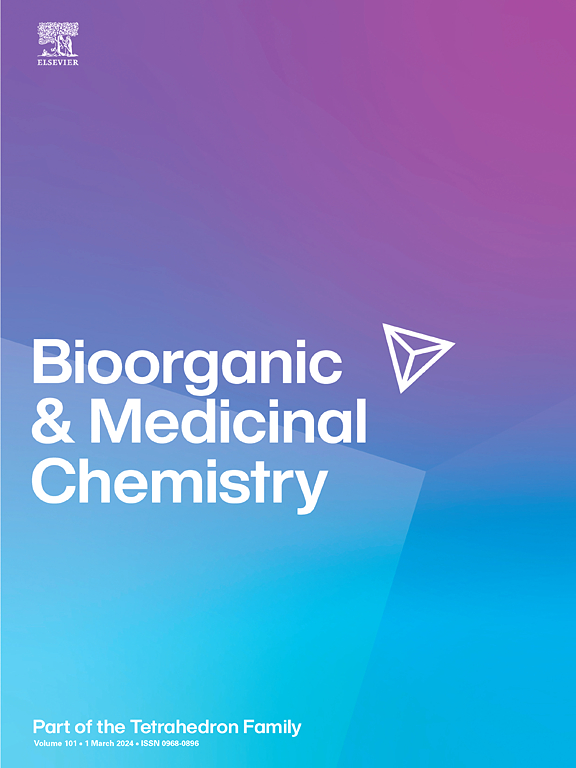基于阿司匹林的PROTACs作为COX-2降解剂的抗炎作用。
IF 3.3
3区 医学
Q2 BIOCHEMISTRY & MOLECULAR BIOLOGY
引用次数: 0
摘要
环氧合酶-2 (cycloxygenase -2, COX-2)是前列腺素生物合成的关键酶,在炎症反应过程中起特殊作用。COX-2是非甾体抗炎药(NSAIDs)的靶点,通过抑制COX-2可有效缓解炎症、疼痛和发热反应。尽管针对COX-2的抑制剂的研究取得了重大进展,但COX-2降解剂的开发仍然不足。蛋白水解靶向嵌合体(Proteolysis targeting chimaeras, PROTACs)近年来成为一种引人注目的靶向蛋白质降解和药物发现技术。在本报告中,我们设计、合成和检测了基于阿司匹林的PROTACs,这些PROTACs在脂多糖刺激的RAW264.7细胞中显示出有效的泛素-蛋白酶体途径降解COX-2,并且基于阿司匹林的阴性PROTACs不促进COX-2的降解。此外,通过定量蛋白质组学数据分析,我们发现AspPROTACs可以显著影响蛋白酶体降解和炎症信号通路。这些COX-2降解物为抗炎药物的研究提供了有价值的化学工具和新的见解。本文章由计算机程序翻译,如有差异,请以英文原文为准。

Aspirin-based PROTACs as COX-2 degraders for anti-inflammation
Cyclooxygenase-2 (COX-2) is a key enzyme in the biosynthesis of prostaglandins and plays a special role in the process of inflammatory response. COX-2 is a target of non-steroidal anti-inflammatory drugs (NSAIDs), which can effectively relieve inflammation, pain and fever responses by inhibiting COX-2. Despite the significant study progress of inhibitors targeting COX-2, the development of COX-2 degraders remains insufficient. Proteolysis targeting chimaeras (PROTACs) have recently emerged as a fascinating technology for targeted protein degradation and drug discovery. In this report, we present the design, synthesis and detection of aspirin-based PROTACs that demonstrate effective ubiquitin–proteasome pathway degradation of COX-2 in lipopolysaccharide-stimulated RAW264.7 cells, and the aspirin-based negative PROTACs does not promote the degradation of COX-2. Moreover, we show AspPROTACs could significantly affect proteasome degradation and inflammatory signaling pathways through quantitative proteomic data analysis. These COX-2 degraders offer valuable chemical tools and novel insights for research in anti-inflammatory drugs.
求助全文
通过发布文献求助,成功后即可免费获取论文全文。
去求助
来源期刊

Bioorganic & Medicinal Chemistry
医学-生化与分子生物学
CiteScore
6.80
自引率
2.90%
发文量
413
审稿时长
17 days
期刊介绍:
Bioorganic & Medicinal Chemistry provides an international forum for the publication of full original research papers and critical reviews on molecular interactions in key biological targets such as receptors, channels, enzymes, nucleotides, lipids and saccharides.
The aim of the journal is to promote a better understanding at the molecular level of life processes, and living organisms, as well as the interaction of these with chemical agents. A special feature will be that colour illustrations will be reproduced at no charge to the author, provided that the Editor agrees that colour is essential to the information content of the illustration in question.
 求助内容:
求助内容: 应助结果提醒方式:
应助结果提醒方式:


